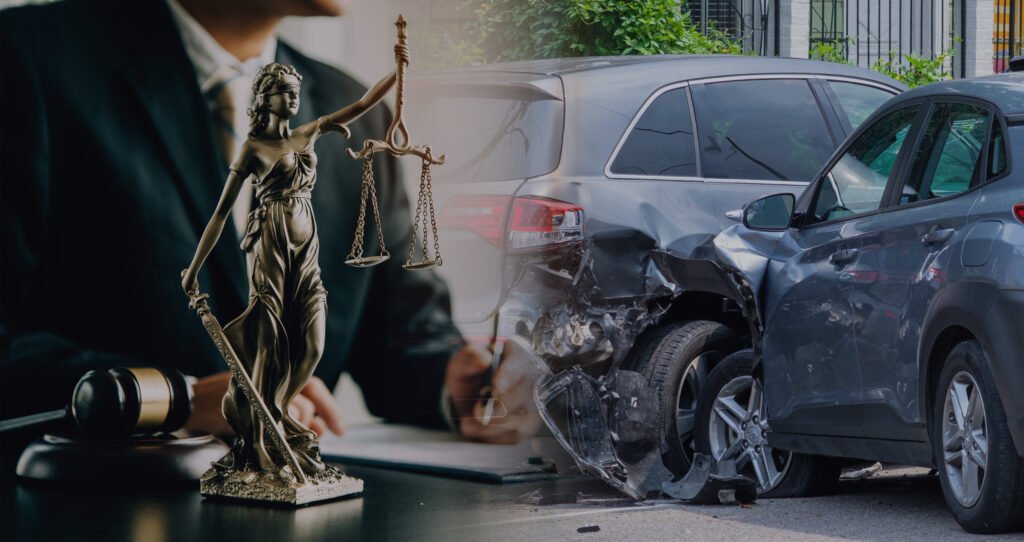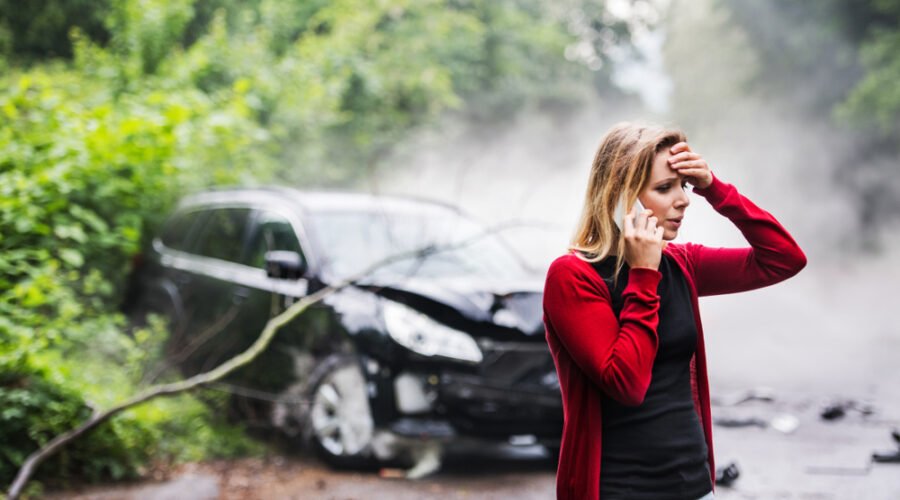The Danger of Saying “I’m Okay”: Words to Never Say at an Accident Scene
- By Car Accident Lawyer Tacoma WA
- accident scene checklist car accident evidence Car Accident Lawyer Tacoma car accident photos documenting an accident insurance claim photos personal injury lawyer smartphone evidence tacoma accident what to do after accident what to photograph after accident Why It's the Most Important Document for Your Future
- With 0 comments
Table of Contents
ToggleThe Danger of Saying “I’m Okay”: Words to Never Say at an Accident Scene
The dull, metallic thud. The shriek of tires clawing at the asphalt. Then, an eerie silence after everything stops. In just a few seconds, a car accident shatters the calm of our daily lives. Amid the smell of airbag propellant and shattered glass, you are in a state of shock and confusion. The other driver approaches and asks, “Are you okay?” In this moment, our instincts often push us to de-escalate the situation. We respond politely, perhaps without even fully processing what has just happened, and say out of habit: “Yeah, I’m okay.” But legal and medical professionals warn in unison: this short, well-intentioned phrase can be the most dangerous thing you say for your future. Your words at an accident scene become an invisible witness, capable of setting unexpected traps on your path to claiming your health and your rightful compensation. This isn’t just about a few words; it’s about protecting your health, your finances, and your future.1. The Adrenaline Deception: Why “I’m Okay” is a Medical Gamble
Immediately after an accident, our bodies undergo a dramatic change to ensure survival. The “fight-or-flight response” is activated, flooding our bloodstream with a massive amount of adrenaline and endorphins. These powerful hormones are our body’s natural painkillers. They dull pain and provide a temporary surge of strength and clarity to help us escape the immediate crisis. The problem is that this powerful magic doesn’t last. Under the influence of adrenaline, you might not feel anything more than a slightly stiff neck or a dull headache. This leads you to confidently believe that you are, in fact, “okay.” But hours, or even days later, as the adrenaline’s magic wears off, the true nature of your injuries begins to reveal itself.- Whiplash: One of the most common post-accident injuries, caused when the violent back-and-forth motion of a collision damages the muscles and ligaments in the neck. Symptoms can be minimal at first, leading to severe pain, headaches, and dizziness a day or two later.
- Concussion: Even without a direct blow to the head, the jarring motion of the crash can cause the brain to strike the inside of the skull, resulting in a mild traumatic brain injury. Symptoms like nausea, memory problems, and difficulty concentrating can be delayed.
- Soft Tissue Damage and Internal Bleeding: Injuries to muscles, tendons, or internal organs are not visible from the outside and may not be immediately painful. If left untreated, they can lead to serious complications.
2. The Legal Trap: Words That Can Jeopardize Your Claim
An accident scene is a place of high emotion and confusion, but in legal terms, it’s also a scene where everything is potential evidence. You must understand how a few careless words can come back to haunt you.- “I’m sorry.” / “It was my fault.” Even if meant as a polite gesture to a shaken driver, these words can be interpreted as a direct admission of fault. While an accident may have complex causes, your simple apology can be used as definitive evidence to place all the blame on you. Never admit fault. Determining liability is the job of investigators, not yours.
- “I’m okay.” / “I’m not hurt.” As mentioned, this is medically dangerous and legally devastating. This statement weakens your right to claim compensation for physical injuries. When you later try to claim for medical bills, physical therapy, and lost wages, the insurance company will use this statement as grounds to deny or drastically reduce your payment.
- “I think…” and Other Speculations Speculating, such as saying “I think I was going the speed limit” or “I guess that car came out of nowhere,” is risky. Your memory may be unreliable due to shock. It is best not to say anything you are not 100% certain of. Stick only to objective facts. Incorrect speculation can later damage the credibility of your entire testimony.
- Prematurely Agreeing to a Recorded Statement The other party’s insurance company will likely contact you quickly. They will act friendly and concerned, and they will ask for a “recorded statement” about the accident. Never agree to this without first speaking to an attorney. Their questions are strategically designed to trick you into making statements that hurt your claim.
3. The Smart Response: What You Should Say and Do
So, what should you say and do in the chaos of an accident scene? The answer is to say little, stick to the facts, and prioritize safety.- Ensure Safety and Call 911: First, check on the safety of yourself and your passengers. If possible, move your car to a safe location. Call 911 to request police and paramedics. This is the first step to officially documenting the accident.
- Instead of “I’m okay,” Say “I’ll need to be checked out by a doctor.” When someone asks how you are, this is the wisest and most honest answer. “I’m not sure if I’m okay or not. I’ll have to see a doctor to know for sure.” This statement avoids making a premature judgment about your condition while leaving all future possibilities open.
- Exchange Only Necessary Information: Be polite but brief with the other driver. Exchange only your name, contact information, address, insurance company info, driver’s license number, and license plate number. Avoid debating or discussing the details of the accident.
- Document Everything: Use your smartphone to take as many pictures as possible from multiple angles: the accident scene, vehicle damage, road conditions, traffic lights, and any nearby signs. If there are witnesses, politely ask for their contact information.
Featured Tacoma Car Accident Lawyers
Car Crash Washington Tacoma Car Accident LawyerRecommended Tacoma Car Accident Information Sites
Knowing the correct information and official procedures after a car accident is critically important. The list below contains useful resources from credible government agencies for Washington State and the Tacoma area.Accident Reports & Relevant Laws
- Washington State Patrol (WSP) – Request a Collision Report
- This is the official portal to request and receive official reports for traffic collisions handled by the Washington State Patrol. This document is essential for insurance claims and legal proceedings.
- Link:
https://www.wsp.wa.gov/driver/collision-reports/
- Revised Code of Washington (RCW) – Rules of the Road
- Here you can view the official text of Washington State’s traffic laws (Title 46 RCW). This includes rules on right-of-way, speed limits, and other regulations that serve as the legal basis for determining fault.
- Link:
https://app.leg.wa.gov/rcw/default.aspx?cite=46.61
- Tacoma Municipal Code – Traffic Regulations
- Description: For accidents that occur on city streets within Tacoma, the city’s specific traffic ordinances may apply. You can look up local regulations here.
- Link:
https://www.cityoftacoma.org/government/city_council/municipal_code(Search for ‘Title 11 – Vehicles and Traffic’ on the page)
Insurance, Licensing, and Vehicle Information
- Washington State Office of the Insurance Commissioner (OIC)
- This is the official source for the most accurate information on Washington’s minimum auto insurance requirements and consumer rights in case of a dispute with an insurance company.
- Link:
https://www.insurance.wa.gov/
- Washington State Department of Licensing (DOL)
- The official site to handle driver and vehicle-related administrative tasks, including filing an accident report, checking your driver’s license status, and accessing vehicle registration information.
- Link:
https://www.dol.wa.gov/
Real-Time Traffic & Safety Information
- Washington State Department of Transportation (WSDOT) – Tacoma Area Traffic
- This site provides real-time traffic conditions, road closures, construction updates, and live traffic camera feeds for the Tacoma area, which is useful for understanding road conditions.
- Link:
https://wsdot.com/travel/real-time/map/?region=tacoma
- Washington Traffic Safety Commission (WTSC)
- Description: Offers in-depth information on traffic safety, including accident statistics, data, and safety campaigns in Washington State, helping to raise awareness and prevent future accidents.
- Link:
https://wtsc.wa.gov/
Google Search
- Live Google Search Results
- See the real-time Google search results for “Tacoma car accident lawyer.” Explore the wide range of information available on the web.
- Link:
https://www.google.com/search?q=Tacoma+car+accident+lawyer


We hope that through this article, you have a better understanding of your situation after a car accident and feel that you are not alone. The most important part of your recovery is protecting your rights with the right information.
If you need to connect with an expert who will listen to your story and fight on your side, find the best car accident lawyers in Tacoma through a free consultation at the Car Accident Lawyer Directory Tacoma.
Information
Find a Lawyer
Tacoma Car Accident Lawyers
Ask A Lawyer
Google Search Result
Washington State Traffic Accident Information

